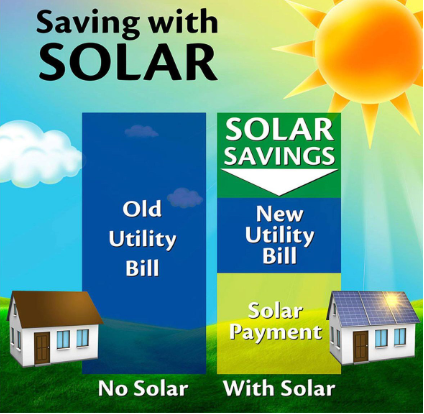Phoenix Solar Companies
You've made the decision to install solar panels on your roof. So, what's next? Although it is costly for the phoenix solar companies to install solar panels, they provide both financial and environmental benefits. These are seven benefits you will notice after installing solar panel panels.
-
Your home's value will increase
On average, solar panels increase the home's resale price by 3.5 percent. A variety of architectural styles and property markets mean that homebuyers are willing to pay more for homes with solar panels.
-
It is important to calculate the return on your investment.
The increased value of solar energy is often greater than the cost of installation. This results in a rapid return on investment. Most homeowners see a 7 percent annual return on their solar energy investment within the first year.
-
The meter is turning backward.
Your power meter will likely run in reverse after you go solar. Your meter tracks and records the energy generated by your PV system. The electrical meter reverses itself when your PV system produces more energy than your home uses. If you reach net-zero, your meter will spin backward as well as forwards in a typical year. This is when you have enough panels to produce the same amount of kilowatt-hours as your home.
-
Electricity bill reduced
A grid-tied PV system can help a Florida homeowner save 70 to 90% on electricity. Due to utility base rate fees, taxes, and government fees, a net-zero system, which allows you to offset your total energy consumption, can reduce electric costs by approximately 90%.
-
Reduce carbon footprint
Solar power can be used to reduce harmful electricity emissions. This is because it doesn't emit carbon dioxide from electrical consumption. This carbon offset saves thousands of gallons each year. According to the Solar Energy Industries Association (SIA), 37 million tonnes of CO2 were neutralized by the solar industry by cutting carbon emissions by 956 million trees. Switching to solar can make a difference in the world and help to reduce carbon emissions.
-
Sunlight creates air conditioning.
Your PV system will power your air conditioner. The PV system is connected to the main building panel so it can power all of your devices.
-
You'll always have power backup in case the utility power goes off.
If your PV system has a battery backup, you'll still have electricity backup in case the utility power goes off. A grid-connected PV system will not store energy and will automatically shut down if power is lost. This prevents the PV system from overfeeding utility workers and putting them at risk.
It is important to remember that each home and every PV system are different. Power consumption is proportional with roof area, so net-zero might not be possible in all homes.

